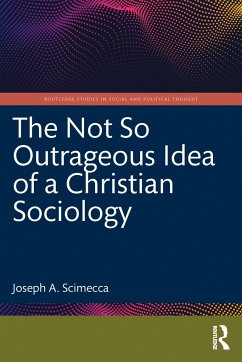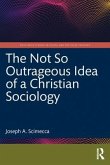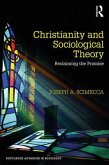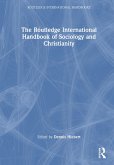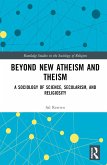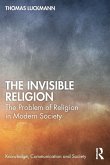This book provides a rationale for a Christian sociology, challenging the materialist epistemology of contemporary sociology, which provides only a limited understanding of social behavior. Developing a history of the origins of sociology that recognizes the centrality of Christianity to the discipline's development, it considers the secularization thesis and questions surrounding positivism, scientism and postmodernism, as well as engaging with the work of a range of figures including Margaret Archer, Robert Bellah, Peter Berger, Hans Joas, Thomas Luckmann, David Martin, and Christian Smith. A critique of modern sociology, which argues that a Christian approach provides a better explanation than contemporary paradigms of the polarization occurring today in American society, The Not So Outrageous Idea of a Christian Sociology will appeal to scholars and students with interests in sociological theory, research methods and epistemology, and the sociology of religion.
Bitte wählen Sie Ihr Anliegen aus.
Rechnungen
Retourenschein anfordern
Bestellstatus
Storno

